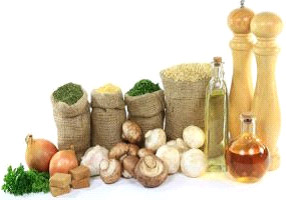

Top 7 healthy cooking oils
Health Me Up
21 Jul 2012: With a wide range of cooking oils on market shelves, it’s easy to get confused about which oils are healthy for daily use. Even more confusing is the way each oil can and should be used.
 Always remember that oil by itself does not contain ’cholesterol’, but it helps to promote its formation in the body. In order to get the maximum benefit from the oils, one could use a mix of oils - use different oils for different methods and purposes in cooking. We asked Delhi-based nutritionist Mrs Himanshu Kapoor about her top picks of healthy cooking oils, and these are the top 7 healthy cooking oils she recommends.
Always remember that oil by itself does not contain ’cholesterol’, but it helps to promote its formation in the body. In order to get the maximum benefit from the oils, one could use a mix of oils - use different oils for different methods and purposes in cooking. We asked Delhi-based nutritionist Mrs Himanshu Kapoor about her top picks of healthy cooking oils, and these are the top 7 healthy cooking oils she recommends.
Sunflower/Safflower oil: The most commonly used oil in Indian kitchens, this oil is rich in PUFA, particularly linoleic acid, which lowers the levels of good as well as bad cholesterol. So it will be a good idea to use this oil in combination with other oils as Palmolein oil. We can alternate the cooking with different oils.
Ghee: Also called clarified butter. This, being animal fat, contains saturated fat and cholesterol. According to Ayurveda, ghee contains some medicinal properties, so to get the benefits of its qualities use sparingly in your food as excess would lead to heart disease.
Coconut oil: Mostly used in southern parts of India, unfortunately Coconut oil is sometimes considered unhealthy. While this oil contains saturated fats, they are different from those present in animal fats and like other vegetable oils, coconut oil does not contain cholesterol hence it can be consumed for cooking in combination with other oils in the kitchen. But always remember moderation is the key word.
Groundnut oil: Groundnut or peanut oil contains heart friendly MUFA that lowers levels of bad cholesterol in our body without lowering the levels of good cholesterol. It is available in filtered and refined form. The filtering process is nutritionally superior, but may contain toxic compounds, so preferred should be filtered and refined groundnut oil of reputed brands. This oil is suitable for all types of cooking - frying, grilling and tempering or seasoning.
Mustard oil: Loved and also hated by some for its pungent and sharp flavor, mustard oil is available as filtered oil, and refined mustard oil is sold as vegetable oil. This oil has higher proportion of Mono-unsaturated and Poly-unsaturated fatty acids. Thus should be used in small quantities for certain vegetables only. As it may have undesirable effects on health if used in large quantity.
Rice bran oil: This oil is rich in mono-unsaturated fatty acids and cholesterol lowering properties due to the presence of a component called oryzanol. It also contains natural vitamin E - an antioxidant and is also good for the skin. This does well in high heat cooking as it does not decompose at high temperature to form toxic compounds, hence suitable for deep frying. Experiments in the kitchen have shown that snacks fried in this oil absorb 12-25% less oil than those prepared in Groundnut oil.
Olive oil: This mono-unsaturated oil helps lower bad cholesterol levels and triglycerides without lowering good cholesterol levels. Different stages of pressing and processing yields different varieties of olive oil. Extra virgin is excellent for salad dressings. Do not use for cooking anything on high heat. Virgin Olive oil is the yield of the second press. In the pure stage, the Olive oil goes through a certain amount of processing - filtration and refining. Pomace- Processed and refined to be used for Indian cooking.